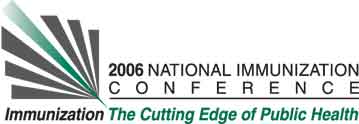Marlene M. Lugg, Kaiser Permanente, 13652 Cantara St, South 1 Bldg, Panorama City, CA, USA and Monique Bryher, Eurisko Corp, Tarzana, CA, USA.
Learning Objectives for this Presentation:
By the end of the presentation, participants will be able to improve registry information by de-duplication processes
Background:
Several computerized Immunization Registries are currently developing interactive reporting VAERS, which should prove its sensitivity, accuracy, timeliness and acceptability. However, additional data is needed to carry out large-scale safety studies of vaccines. Large registries such as Kaiser Permanente's Immunization Tracking System (KITS) can be used successfully for vaccine safety studies. Covering all ages of present and past Southern California Kaiser Permanente members, KITS contains over 26 million entries.
Objectives:
Improvement of registry information by de-duplication processes, and identifcation of data attributes necessary for vaccine safety studies.
Methods:
A major difficulty in compiling large amount of data from multiple sources is assuring that records are not duplicated. Registries must have good de-duplication methodology and quality assurance measures answering the questions "Are all immunizations recorded?" "Are they recorded accurately?" "Are they recorded for the right individual?" "Does the individual have more than one ID in the system,? And "Do two or more persons share the same ID in the system?"
Duplication and quality assurance data was collected before and after application of algorithms and quality assurance programs to KITS. Other necessary data items for vaccine safety research include manufacturer and lot number, date and site of administration. In addition, improved compliance monitoring of immunization practices and KITS usage has resulted in a less than one- percent discrepancy between the automated and manual immunization data.
Results:
Automated de-duplication methodology developed and applied to KITS resulted in a 99.7% match rate (up from 85% four years ago, before de-duplication algorithms were developed). This methodology is suitable for other registries.
Conclusions:
Application of algorithms developed for KITS de-duplication and quality assurance has improved the quality and usefulness of KITS for Vaccine Safety Studies, and is useable for other disease registries.
See more of Posters
See more of The 40th National Immunization Conference (NIC)

